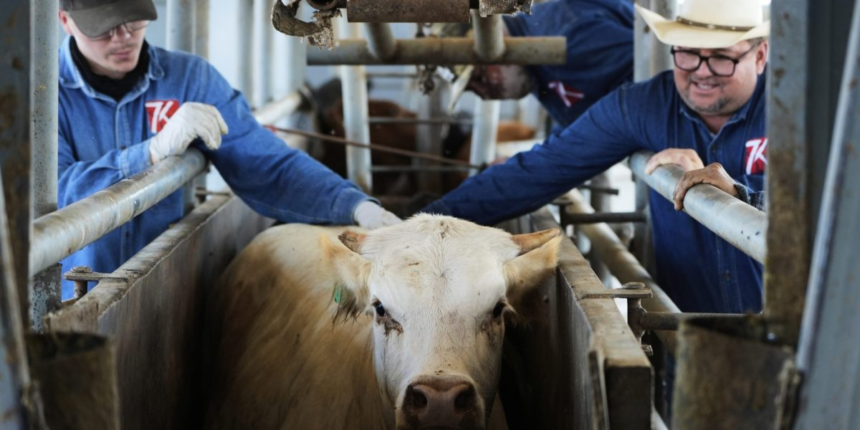The U.S. plans to build a $750 million factory in southern Texas to breed billions of sterile flies, ramping up its efforts to keep flesh-eating maggots in Mexico from crossing the border and damaging the American cattle industry.
“Farm security is national security,” Rollins said during a news conference at the Texas State Capitol in Austin with Texas Gov. Greg Abbott. “All Americans should be concerned. But it’s certainly Texas and our border and livestock producing states that are on the front lines of this every day.”
The pest was a problem for the American cattle industry for decades until the U.S. largely eradicated it in the 1970s by breeding and releasing sterile male flies to breed with wild females. It shut down fly factories on U.S. soil afterward.
Mexico’s Agriculture ministry said in a statement Friday that Mexico Agriculture and Rural Development Secretary Julio Berdegué Sacristán and Rollins signed a screwworm control action plan. It includes monitoring with fly-attracting traps and establishing that livestock can only be moved within Mexico through government-certified corrals, the statement said.
The new fly-breeding factory in Texas would be the first on U.S. soil in decades and represents a ramping up of the USDA’s spending on breeding and releasing sterile New World screwworm flies. The sterile males are released in large enough numbers that wild females can’t help but mate with them, producing sterile eggs that don’t hatch. Eventually, the wild fly population shrinks away because females mate only once in their weekslong lives.
In June, Rollins announced a plan to convert an existing factory for breeding fruit flies into one for breeding sterile New World Screwworm flies, as well as a plan to build a site, also on the air base near Edinburg, for gathering flies imported from Panama and releasing them from small aircraft. Those projects are expected to cost a total of $29.5 million.
The Panama fly factory can breed up to 117 million flies a week, and the new Mexican fly factory is expected to produce up to 100 million more a week. Rollins said the new Texas factory would produce up to 300 million a week. She said President Donald Trump’s administration wants to end the U.S. reliance on fly breeding in Mexico and Panama.
“It’s a tactical move that ensures we are prepared and not just reactive, which is today what we have really been working through,” Rollins said.









